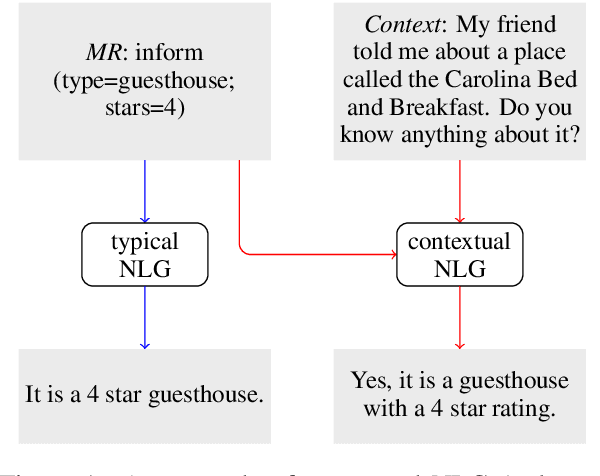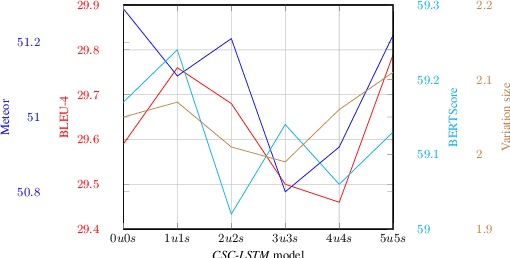Context Matters in Semantically Controlled Language Generation for Task-oriented Dialogue Systems
Paper and Code
Nov 28, 2021



This work combines information about the dialogue history encoded by pre-trained model with a meaning representation of the current system utterance to realize contextual language generation in task-oriented dialogues. We utilize the pre-trained multi-context ConveRT model for context representation in a model trained from scratch; and leverage the immediate preceding user utterance for context generation in a model adapted from the pre-trained GPT-2. Both experiments with the MultiWOZ dataset show that contextual information encoded by pre-trained model improves the performance of response generation both in automatic metrics and human evaluation. Our presented contextual generator enables higher variety of generated responses that fit better to the ongoing dialogue. Analysing the context size shows that longer context does not automatically lead to better performance, but the immediate preceding user utterance plays an essential role for contextual generation. In addition, we also propose a re-ranker for the GPT-based generation model. The experiments show that the response selected by the re-ranker has a significant improvement on automatic metrics.
 Add to Chrome
Add to Chrome Add to Firefox
Add to Firefox Add to Edge
Add to Edge